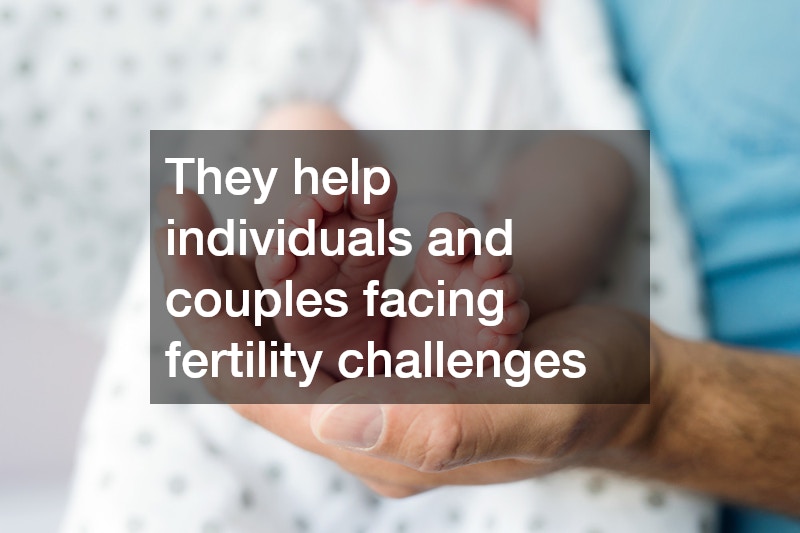
What Are Egg Donors?
Eggs donors play a critical role in assisted reproductive technology, helping individuals and couples build families when natural conception is not possible. Egg donation is an altruistic and medically supported process where a woman provides her eggs for use in in vitro fertilization (IVF) procedures. Understanding the role, requirements, and benefits of egg donation is essential for both prospective donors and intended parents.
1. What Is an Egg Donor?
1.1 Definition of an Egg Donor
An egg donor is a woman who provides her eggs to assist another individual or couple in conceiving a child. These eggs are retrieved through a medical procedure and used in IVF treatments, often helping those with fertility challenges.
1.2 Role in the IVF Process
Egg donors contribute to IVF by supplying viable eggs that can be fertilized with sperm from a partner or donor. The resulting embryos are then implanted into the intended parent’s uterus or a surrogate’s uterus.
1.3 Types of Egg Donation
Egg donation can be anonymous, where the donor and recipient do not know each other, or known, where the donor may be a friend or family member. Each type has unique considerations regarding legal agreements and emotional involvement.
1.4 Legal Aspects of Egg Donation
Legal agreements are crucial to define parental rights, compensation, and responsibilities. Contracts ensure that the donor relinquishes parental rights and protects all parties involved.
1.5 Importance of Egg Donors in Family Building
Egg donors provide opportunities for individuals and couples facing infertility, same-sex couples, or single parents to experience pregnancy and childbirth, making them indispensable in modern family building.
2. Who Can Become an Egg Donor?
2.1 Eligibility Criteria
Prospective egg donors must meet certain criteria, including age limits, good general health, and reproductive fitness. Agencies often require donors to be between 21 and 32 years old.
2.2 Health Requirements
Donors must undergo thorough medical screening, including blood tests, genetic testing, and reproductive evaluations, to ensure the eggs are healthy and the donor can safely undergo ovarian stimulation.
2.3 Age Considerations
Age is a critical factor because egg quality and quantity decrease over time. Younger donors generally provide healthier eggs with higher success rates in IVF.
2.4 Psychological Evaluation Process
Psychological assessments help determine a donor’s readiness for the emotional and ethical aspects of donation, ensuring they understand the impact of their decision.
2.5 Support for Prospective Donors
Agencies provide counseling and guidance throughout the donation process, addressing medical concerns, emotional well-being, and legal questions.
3. How Does the Egg Donation Process Work?
3.1 Initial Consultation
The process begins with an initial consultation to discuss eligibility, procedures, and expectations. Donors meet with medical staff to review health history and address any questions.
3.2 Pre-donation Testing
Comprehensive testing is conducted, including hormonal assessments, ultrasound exams, and infectious disease screening, to ensure suitability for egg donation.
3.3 Ovarian Stimulation
Donors take medications to stimulate multiple eggs’ growth simultaneously. Regular monitoring through ultrasounds and blood tests ensures safe and effective stimulation.
3.4 Egg Retrieval Procedure
Once the eggs are mature, a minimally invasive procedure is performed to collect them. The procedure is usually outpatient, performed under sedation, and takes about 20–30 minutes.
3.5 Post-retrieval Recovery
Recovery is generally brief, with mild cramping or bloating. Donors are monitored to ensure no complications arise and can typically resume normal activities within a few days.
4. What Are the Risks and Benefits of Egg Donation?
4.1 Physical Health Risks
Risks include ovarian hyperstimulation, bleeding, infection, and anesthesia complications. Medical supervision minimizes these risks significantly.
4.2 Emotional Considerations
Donors may experience emotional challenges related to relinquishing the eggs. Counseling helps address feelings and ensures informed decisions.
4.3 Benefits for Donors
Donors may receive compensation, gain personal satisfaction from helping others, and undergo comprehensive health screenings that can identify medical issues early.
4.4 Long-term Effects
Research shows that egg donation does not typically affect long-term fertility or overall health when properly managed.
4.5 Support and Resources for Donors
Agencies provide ongoing support, including access to counseling, peer networks, and educational resources to guide donors through the experience.
5. What Compensation Do Egg Donors Receive?
5.1 Overview of Compensation Packages
Compensation varies by region and agency but generally ranges from $5,000 to $10,000 per donation cycle. This may cover time, effort, and medical procedures.
5.2 Factors Influencing Compensation
Experience, previous successful donations, location, and demand can affect payment levels. Agencies set compensation to attract qualified donors while maintaining ethical standards.
5.3 Legal Regulations Surrounding Payments
Payments must comply with federal and state regulations. Agencies ensure donors are fairly compensated without violating legal limits.
5.4 Use of Compensation Funds
Donors can use compensation for education, savings, or personal goals. Funds are typically dispersed after completion of the donation cycle.
5.5 Ethical Considerations of Donor Compensation
Compensation must balance fairness and ethical responsibility, avoiding undue inducement while recognizing the donor’s contribution to family creation.
Egg donors are central to modern reproductive medicine, offering hope to individuals and couples facing fertility challenges. Understanding the eligibility, process, risks, benefits, and compensation helps potential donors make informed decisions. By carefully evaluating each aspect and working with qualified agencies and medical professionals, donors and recipients alike can experience a safe, supportive, and successful journey toward creating families.




